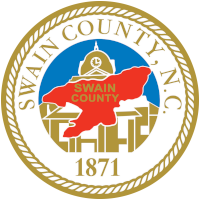Adult Services
Adult Care Home Case Management
Certain Medicaid Special Assistance eligible residents in Adult Care Homes (rest homes) have extensive needs for personal care assistance and qualify for additional support by Medicaid for this purpose. The function of case management is to verify the need for this additional assistance and to assure that the resident’s needs for personal care, as well as needs for other related health and social services, are being met. These services are directed at the goal of improving the overall quality of care for Special Assistance/Medicaid-eligible heavy care residents of Adult Care Homes. A heavy care resident is one who needs a lot more assistance than most residents do. An example is a person who is dependent on the staff at the rest home to meet their needs. Enhanced care clients need and require additional personal care assistance, case management support, and other needed services. The purpose of Adult Care Home Case Management Services (Enhanced Care) is to provide a case manager to work in partnership with residents, residents’ families, significant others, Adult Care Home Monitoring, and community service providers to assure that the needs and preferences of heavy care residents are being met. Case managers have important and diverse roles with these residents. Case management services are provided by staff from County Departments of Social Services. Activities include:
- Verifying the need for enhanced Adult Care Home Monitoring personal care
- Assuring the Adult Care Home’s plan corresponds to the needs of the resident
- Reviewing the provision of care to assure changes in the resident’s conditions are being addressed
- Determining the need for other community-based services
- Assisting the resident and the Adult Care Home Monitoring in accessing other needed services
Licensing of Residential Facilities
Guardianship
The agency provides all necessary services as a disinterested public guardian when appointed by the Clerk of Court under General Statute 35A. In cases where elderly or disabled individuals need a guardian to assure their health, safety, and well-being. In some cases, Social Services is appointed to be guardian of such persons by the court.
Guardianship is a legal relationship in which someone (the guardian) is authorized by the clerk of superior court to be a substitute decision-maker for an incompetent adult (the ward). Incompetence is determined in a court proceeding and means an individual is unable to manage his own affairs or is unable to make important decisions.
There are three types of guardians:
- Guardian of the person (makes decisions in most areas of the ward’s life, such as where they live, what type of care they receive, medical decisions)
- Guardian of the Estate (has authority to manage the ward’s income and property) and
- General Guardian (has the powers and duties of both guardian of the person, and guardian of the estate)
Anyone, including a family member, a representative of a department of social services, mental health center, health department, or anyone else who knows the person, may file a written request (a petition) with the clerk of superior court alleging that an adult should be declared incompetent and have a guardian appointed. Every clerk’s office has forms that may be completed and filed for the petition. Currently, the Adult Protective Service Unit may file a petition on individuals who are either indigent, or in need of protection, AND HAVE NO ONE WHO CAN OR WILL ACT IN THEIR BEHALF.
The Department of Social Services currently serves as Guardian for a number of wards, who either have no family or none available to serve in that capacity.
Guardianship Services Include
Case management Monthly assessment of ward’s needs (by visiting with the ward, communicating with health providers, and other persons who are involved with the ward) Development of a service plan Quarterly assessments and yearly assessments and File necessary reports with the court/estate division
Payeeship
Social Services also serves as protective payee and provides services to individuals in jeopardy of being deprived of basic needs. When appointed as representative payee, the agency manages income to meet client’s needs when the client has been determined unable to manage financial benefits.
Adult Placement Services
We can assist aged or disabled adults and their families in finding suitable Adult Care Homes or nursing homes for disabled adults and their families when the adult can no longer remain in their home safely. The long term care placement service offers counseling and information to individuals and families that are making decisions about facility placement. We also assist in evaluating if a group home placement is appropriate for an individual, help the family find a home that is a good match for the client’s need, and work with the family to make the transition as easy as possible.
Adult Placement Services in conjunction with North Carolina Senior Services also help elderly and disabled adults who are unable to maintain themselves in their own homes independently or with available community or family supports, those living in substitute homes, residential health care facilities, or institutions and need assistance in relocating due to changes in level of care needed, those who need assistance in returning to more independent living arrangements, and those who need assistance in adjusting to or maintaining their placements due to individual or family problems or a lack of resources.
List of Adult Care Providers in our Area
Bryson City Living Center
828-488-2780
PO Box 1429
Bryson City, NC 28713
Mountain View Nursing Center
828-488-2101
PO Box 2344
Bryson City, NC 28713
Tsali Care- For EBCI Enrolled Members Only
828-497-4471
PO Box B5
Cherokee, NC 28719
Tsali Manor – For EBCI Enrolled Members Only
828-497-4471
PO Box B5
Cherokee, NC 28719
Nutrition, Home repairs, Senior Citizen Fuel Program, Emergency Assistance, Home Delivered Meals, Plowing Program, and Cannery Program
Hospice & Home Health
West Care Health
828-488-3877
PO Box 389
Bryson City, NC 28713
CNA, Physical, occupational, & speech therapy, Skilled Nursing, Social Work, Team approach terminal focus support for family and quality of life.
Adult Protective Services
Adult Protective Services helps ensure that elderly and disabled citizens live healthy, independent and productive lives free from abuse, neglect and exploitation. Protective Services provides an immediate, comprehensive assessment of abuse, neglect and exploitation reports. When substantiated, social workers quickly and appropriately intervene to protect the “at risk”, abused, neglected or exploited individuals. They also give the individuals access to an entire continuum of care, services, and resources available. Adult Services helps meet this need through programs designed to promote independence, choice, and self-sufficiency. Services provided might be those to correct or prevent further abuse, neglect, exploitation or hazardous living conditions of elderly or disabled adults. In collaboration with other community agencies, Social Services staff work to protect disabled or elderly adults and ensure they are receiving appropriate care. It’s the LAW to report any SUSPECTED forms of abuse.
- Avoidance of eye contact
- Confusion
- Hesitance to talk openly
- Withdrawal/Avoiding Socializing
- Change in appetite or sleep patterns
- Suspicious of paranoid behavior
- Depression
- Unusual and unexplained bruises, welts, fractures and burns. Look for stages of healing or a shape of an object such as a rope, belt, restraints or electric burner
- Bed Sores, weight loss or dry skin and lips
- Clothing inappropriate for weather conditions
- Inadequate shelter or medical care
- Confinement in a dangerous environment
Abuse
Abuse is the willful infliction of physical pain, injury, mental anguish, unreasonable confinement or willful deprivation by a caretaker of services, which are necessary to maintain mental and physical health.
Exploitation Much Exploitation is the illegal or improper use of the disabled adult or his resources for another’s profit or advantage.
Exploitation Indicators:
- Unexplained withdrawal of money from bank accounts
- Use of deceit, treachery or coercion to obtain money assets
- Unusual interest by anyone in the disabled adult’s assets
- Difference between assets and lifestyle
- Unusually large payment for services
- Mismanagement of person’s funds (failure to pay for essential services)
- Inappropriate sexual activity
Self Neglect
When a disabled adult lives alone or has no caretaker and is not able to provide necessary services to maintain his/her mental and physical health.
Self Neglect Indicators:
- Forgetting how to turn the stove on and off
- Aimless wandering at night
- Inability to cook, eat, take a bath, use the bathroom, dress, or care for one’s self
- Unusual thinness or dehydration
- Causing small fires
- Existing in an unsafe environment
- Inappropriate use of medications
- Inability to communicate
Caretaker Neglect Failure of the caretaker to provide services necessary to maintain the physical or mental health of the disabled adult.
Caretaker Neglect Indicators:
- Failure to provide adequate food, clothing, shelter or attention to personal/situational needs
- Failure to manage resources to meet needs
- Failure to provide a safe living environment
- Failure to provide adequate supervision
- Failure of caretaker to provide or arrange for medical need
Do you have concerns about a disabled adult who is either living in the community or in a licensed facility?
Did you know that there is a law that was enacted in 1975 to protect disabled adults from abuse, neglect and exploitation?
Protection of the Abused, Neglected or Exploited Disabled Adult Act is located under Statute 108A Article 6.
This statute was initiated to protect the increasing number of disabled adults in North Carolina who are being abused, neglected or exploited.The statute requires that anyone having reason to believe that a disabled person is in need of protective service shall report such information to the director of the department of social services.
The Social Worker will ask numerous questions of you such as but not limited to adult’s name, address, age/date of birth, Social Security number, family/collateral names, how is the person disabled, what are the allegations of abuse, neglect or exploitation.
The questions asked are important to assure that all appropriate services are made available to the adult.
To accept the referral for Protective Services the information provided must state:
- The adult is physically or mentally incapacitated.
- The adult is being abused, neglected or exploited. If abused, the abuse must be by a caretaker.
- The adult is in need of protection.
This specific criteria is important because Protective Service unlike other services provided by Social Services is initiated without the consent of the adult.
Once a referral is taken for Protective Services, a Social Worker will respond within 72 hours to respond to the case.
A Social Worker is responsible for assessment of the situation and determining the need for protection. The assessment includes evaluating six areas:
- Physical health
- Mental Health
- Social Support
- Activities of daily living and instrumental activities of daily living
- Financial Support
- Physical environment
During the course of the evaluation the Social Worker will talk with the adult, collateral, and use whatever resources necessary to determine whether the adult is in need of protection.
It is important to note that at the end of the assessment the most basic tenet of Adult Protective Service is the right to self-determination. This means that as long as the adult can recognize the consequences of decisions they have made about their lives, their right to make those decisions must be respected. If the adult is unable to recognize the consequences of his decisions due to mental illness, mental retardation, Alzheimer’s, dementia or other cognitive limitation and there is no other responsible party to protect the Adult the Agency is responsible for providing that Protection.
PLEASE IF YOU HAVE CONCERNS ABOUT A DISABLED PERSON PLEASE CALL (828) 488-6921 AND MAKE A REPORT.
Adult Services Include:
- Initial contact within 24 to 72 hours
- Private Interview with Adult
- Assessment of all functional areas of the adults life
- Collateral contacts
- Decision of need
- A Protective Plan if required
- Referral to Appropriate Service

